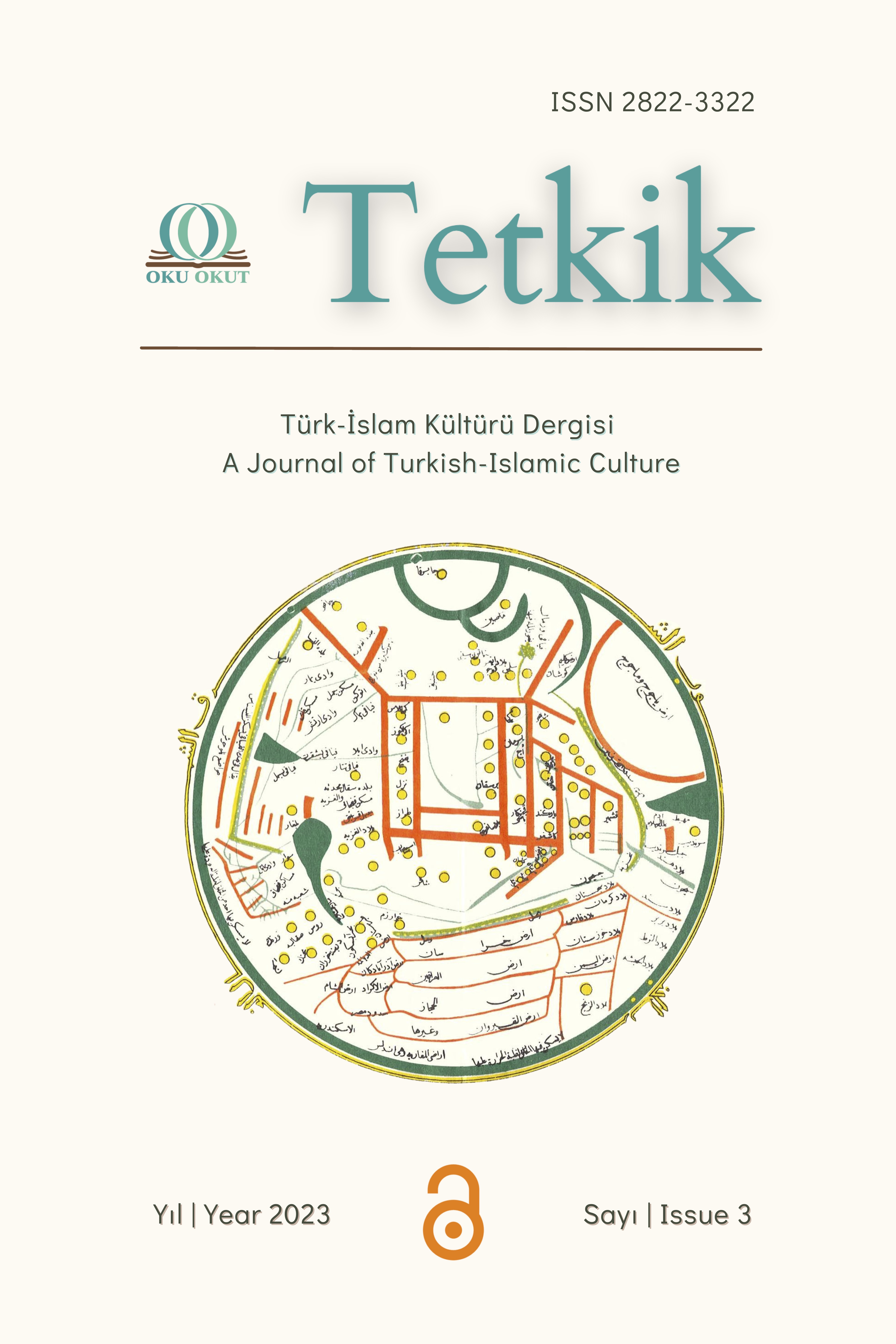Eski Anadolu Türkçesi Dönemi Kur’an Tercümelerinde Gazâ Anlayışının Yansımaları
Reflections of Ghazā Concept in Old Anatolian Turkish Period Qur'ān Translations
Author(s): Özçelik KenanSubject(s): History, Turkish Literature, The Ottoman Empire, Qur’anic studies
Published by: Oku Okut Yayınları
Keywords: Classical Turkish Literature; Old Anatolian Turkish; Qur’ān Translation; Ottoman Empire; Establishment Period; Ghazā Thesis;
Summary/Abstract: Various opinions are put forward in the debates about the establishment of the Ottoman State. One of them is known as the ghazā thesis. The discussion on this view has been alive from its inception to the present day. At the heart of the debate is the question of what is the power that activates the conquerors in Anatolia. According to those who defend this thesis, participating in the war, which means fighting in the way of Allah, is the most potent motivation that moves those people, along with other reasons. The defense of the thesis is naturally based on contemporary sources as much as possible. These appear as coins, inscriptions, endowments, and books. Among the books, literary and religious works, primarily historical sources, are also applied for reference. In this study, the translations of the Qur’ān made in the Old Anatolian Turkish period were examined in the context of these discussions. In these translations, it has been seen that the words ghazā or ghāzi and the phrases formed with them exhibit a significant density in terms of our subject. To endorse this, the Qur’ān translations made before and outside the Anatolian area were used. The words mentioned in these works mentioned as translations of the Qur’ān in Eastern Turkish, rarely used. This determination necessitates the evaluation of the Qur’ān translations made in the Old Anatolian Turkish period, which includes the establishment times of the Ottoman Empire, in the discussions about the ghazā thesis. In the research, three translations of the Qur’ān, known to have been made during the Old Anatolian Turkish period, and two translations of the Qur’ān, which were made in Eastern Turkish, were examined. The translation of the Qur’ān, known as the Bursa Copy, which contains the richest examples in terms of words or phrases related to our subject, was taken as a basis. The examples in the Bursa copy were compared with other translations. Some examples are rarely seen in other translations but not in the Bursa Copy, and these are also given. While the translation examples are given, first, the whole or the relevant part of the verse is presented in its original form, then its translation in today's Turkey Turkish is translated, then the equivalents in the analyzed translations are listed; a brief evaluation was made after each example. The examples are discussed under several headings as they allow classification. Since the examples allow classification, the examples are discussed under several headings.
Journal: Tetkik
- Issue Year: 2023
- Issue No: 3
- Page Range: 5-41
- Page Count: 37
- Language: Turkish

